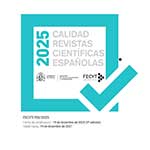ChatGPT: ARTIFICIAL INTELLIGENCE SYSTEMS AND NORTHAMERICAN AND SPANISH JUDGES: SOME BRIEF REFLECTIONS
Abstract
In this paper we critically examine the ethical regulations applicable to the use of AI models like ChatGPT by federal judges in the U.S.A. and Spain. It analyzes provisions concerning judicial independence and impartiality, ex parte communications, data privacy, diligence, and transparency. It concludes that AI poses ethical risks that judges must carefully weigh, verifying the information generated and prioritizing the rights of the parties. Proper guidance would allow leveraging the efficiency benefits of AI, as long as its use is disclosed and responsible. An ethical framework is required given the growing influence of AI on judicial systems.
Article download
License
In order to support the global exchange of knowledge, the journal Derecom. Derecho de la Comunicación is allowing unrestricted access to its content as from its publication in this electronic edition, and as such it is an open-access journal. The originals published in this journal are the property of the Complutense University of Madrid and any reproduction thereof in full or in part must cite the source. All content is distributed under a Creative Commons Attribution 4.0 use and distribution licence (CC BY 4.0). This circumstance must be expressly stated in these terms where necessary. You can view the summary and the complete legal text of the licence.







